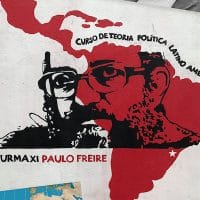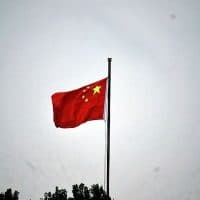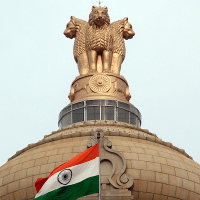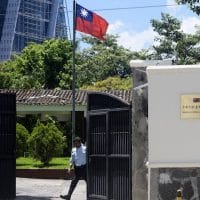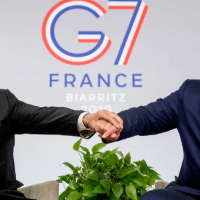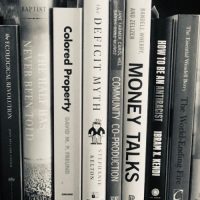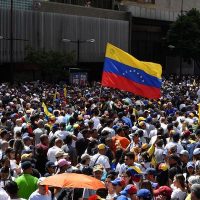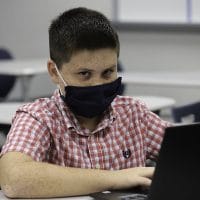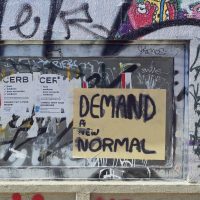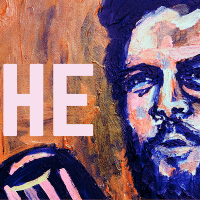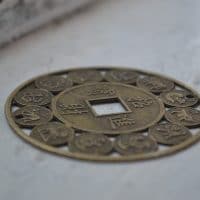-
Dossier 34: Paulo Freire and popular struggle in South Africa
He constantly experimented with and thought about how to connect learning and teaching among the poor and oppressed with the radical transformation of society.
-
China is working to expand its ties to Latin America
In mid-January 2020, 800 people gathered at Mexico’s Ministry of Economy to celebrate “China Day” with a seminar on Chinese-Mexican relations.
-
Public Money, Public Media with Victor Pickard
Victor Pickard joins Money on the Left to discuss the public bases and potentials of money and media in The United States. Professor of Media Policy and Political Economy at the Annenberg School for Communication at the University of Pennsylvania, Pickard is a prolific researcher and author of over one hundred articles and six books […]
-
India’s move toward a de facto unitary state
India is being pushed toward a de facto unitary state, with states being kept totally out of the loop in decision-making, as seen in the new agricultural laws, goods and services tax compensation, Jammu and Kashmir bifurcation and new National Education Policy.
-
U.S. is doing its best to lock out China from Latin America and the Caribbean
Regional governments from both right and left see the BRI as lucrative and free of political interference.
-
How India’s Modi is changing laws to help imperialists dominate the country’s agriculture
The fact that the Center made unilateral and fundamental changes in agricultural marketing arrangements that fall within the State List of the Seventh Schedule of the Constitution was a blow against federalism.
-
What if Everyone on Campus Understood Money?: A Response to Chronicle of Higher Ed Columnist Allison Vaillancourt
Let’s give credit where it’s due: After experiencing decades of neoliberal austerity and serving for nearly as long as pawns in tiresome culture wars, public higher education workers know all too well how the money works on our campuses and in our states. Students and alumni are the major sources of revenue; graduate workers and […]
-
Beyond Plague Urbanism
Over the centuries, humans have survived tragedy through the incredible stoicism of not moving, of standing one’s ground, of resisting, of engaging in tremendous creativity. Perhaps we can use the time alone to think collectively, to reflect together on how we might reconstruct the public realm of our cities.
-
How Venezuela has held back COVID-19 in spite of the U.S. sanctions stranglehold on its economy
A seam of cruelty runs through U.S. policy, which by its sanctions regime prevents Venezuela from open trade of its oil to import key medical equipment to help break the chain of the virus and heal those infected by it.
-
Free David Gilbert: It’s that time of year again, Clemency 2020
David Gilbert, now 76, is in Shawangunk Correctional Facility in his 40th year of a life sentence. In the interests of justice, mercy and the good of society, he and countless others deserve to be released.
-
Triple Crisis in the Anthropocene Ocean. Part Three: The heat of 3.6 Billion Atom Bombs
Since 1987 the ocean has warmed 4.5 times as fast as in the previous three decades. The Intergovernmental Panel on Climate Change (IPCC) projects that even if emissions are substantially reduced, by 2100 the ocean will heat 2 to 4 times as much as it has since 1970–and if emissions are not cut, it will heat 5 to 7 times as much.
-
Indigenous solutions to California’s capitalist conflagrations
Colonial timber management and capitalist land use has produced the wildfire crisis we see today. Prescribed Indigenous burning is a viable preventative solution to high severity wildfire but its success hinges on the fight by Indigenous socialists and grassroots organizers for Tribal sovereignty, land restitution, and the creation of a new prescribed fire workforce.
-
Argentina’s veteran ambassador makes a stand for the sovereignty of Latin America
Alicia Castro does not shy away from her views. She came to diplomacy from the trade union movement, where she was a leader when she was a flight attendant with Aerolíneas Argentinas.
-
Daniel Ellsberg on the Assange extradition and growing fascism
The week of hearings has heard evidence that exposes the charges against Assange as trumped-up and even ridiculous.
-
MAS election victory in Bolivia generates wide repercussion
The victory in first round of the Movement towards Socialism (MAS) party in Bolivia, according to an exit poll, has generated several reactions on Monday after surpassing what was expected in the polls.
-
How online learning companies are using the Pandemic to take over classroom teaching
Experts warn the rush to outsource teaching to private companies is bad for students, teachers, and taxpayers.
-
Normal is gone—where do we go from here?
Your parents at the dinner table laugh and say revolution will not happen in two months. You respond saying perhaps they are right—revolution may not occur in the next two months. But, as Che Guevara said, “the revolution is not an apple that falls when it is ripe. You have to make it fall.”
-
Venezuela’s ability to fight COVID-19 is badly hamstrung by the 31 metric tons of gold stolen from its treasury
On October 5, 2020, the England and Wales Court of Appeal overturned a lower court decision from July that denied the Venezuelan government access to 31 metric tons of its gold stored in the Bank of London.
-
Che
Twenty left publishers from around the world release a joint edition including two essential texts by Che Guevara on the fifty-third anniversary of his assassination by the CIA in Bolivia.
-
Why America’s economic war on China is failing
U.S. President Donald Trump—supported by most of the U.S. establishment—deepened the U.S. government’s assault on the Chinese economy.

